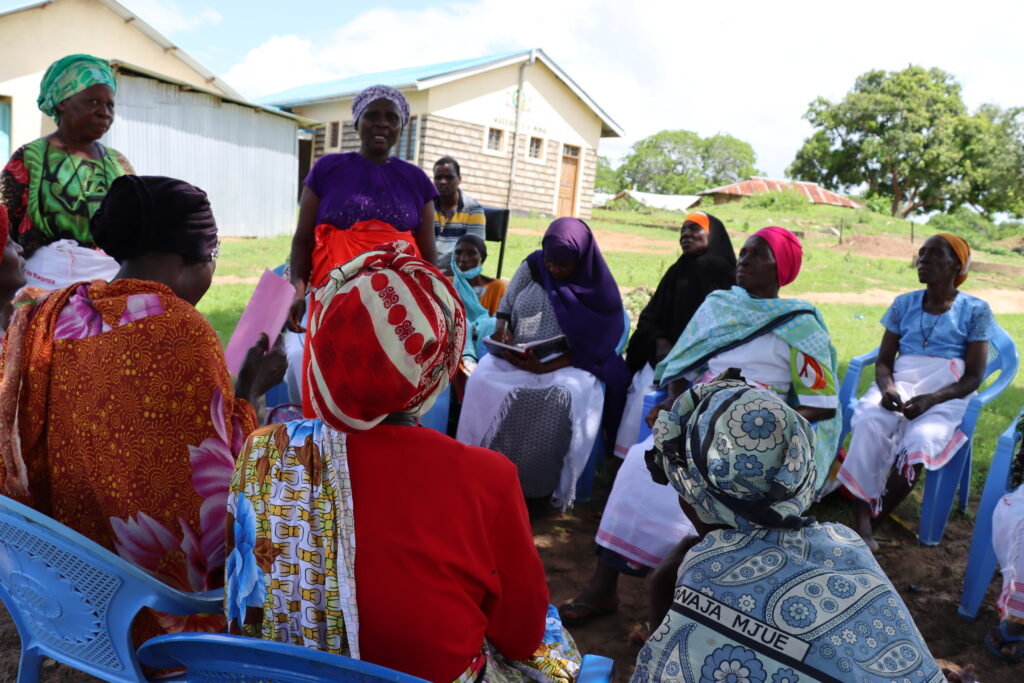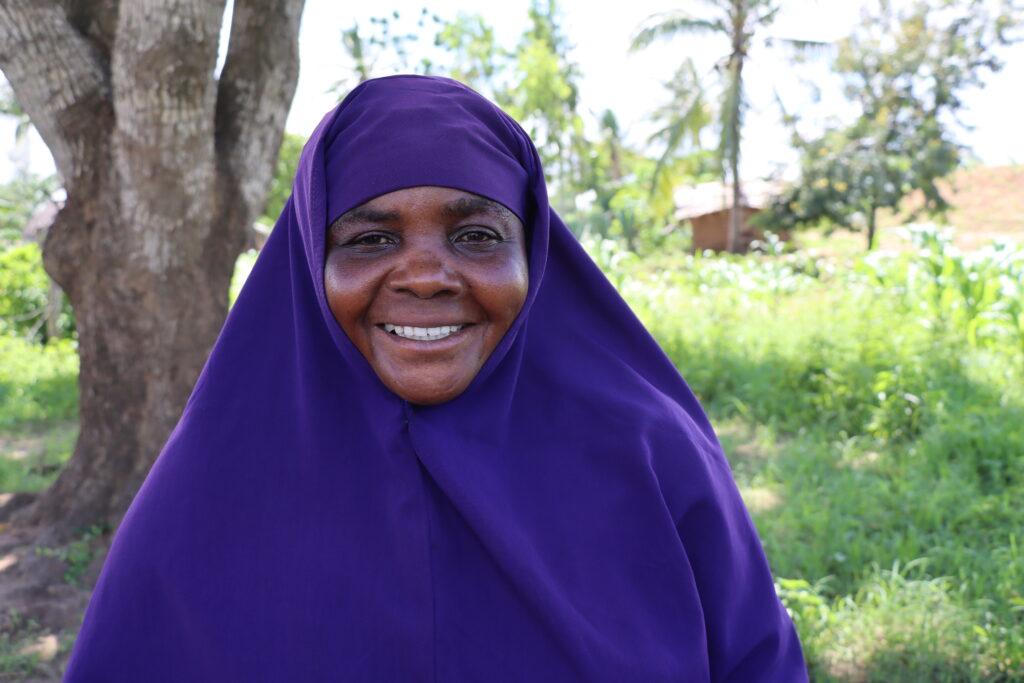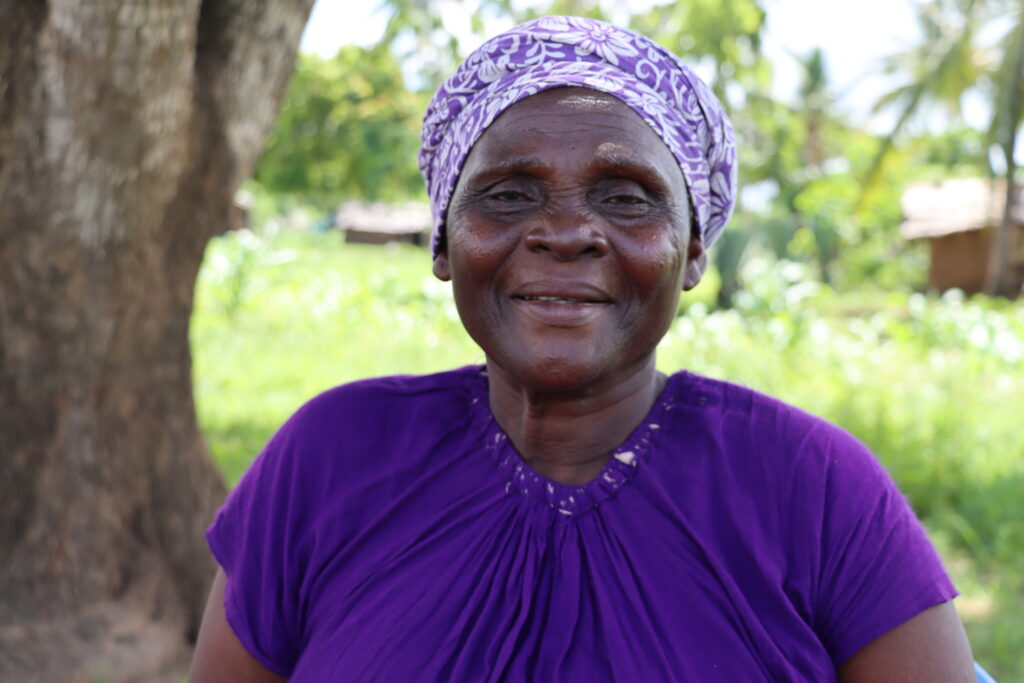It’s barely noon but the sun is scorching forcing us to take shade under a large tree outside Mwanguda dispensary. We are among Maendeleo TBA group, a group of Traditional Birth Attendants (TBAs) who are in attendance at their monthly meeting to monitor the progress of their work. They are all donned in colourful red and white lesos with educational messages in Swahili encouraging exclusive breastfeeding for the first 6 months.
Mama Loise, the chair lady of the group welcomes us and introduces us to the group. The women are happy to see us and welcome us to join the meeting with a native Digo song. She takes the lead and asks each attendant to introduce themselves and the number of women they have ensured delivered at the health facility in the last quarter. Mama Loise explains how they work closely with Community Health Promoters (CHPs) to ensure all pregnant women from their community attend at least 4 ANC visits to receive effective maternal interventions vital to their well-being and that of the infants.

Mwanguda Dispensary is a health facility deep in the Lunga Lunga Sub-county of Kwale County. The facility has seen improvement in skilled birth attendance as well as ANC coverage emanating from a collaboration between the CHPs and TBAs. Mwanguda is linked to Kinyungu CHU which serves the catchment population of more than 5,000 people.
“Each quarter, we have a meeting with CHPs who have identified pregnant women from their household visits. We then get to choose to accompany the one closest to us given that 1 CHP covers up to 100 households. This way, we are able to provide the optimum social support needed before and after birth.” Mama Loise explains.
She shares how a training she attended a few years back promoting hospital deliveries made her reconsider offering home delivery services. “We had been facilitating these deliveries with little skills learnt from an apprenticeship with no medical training. That was all we knew though it put the mother and baby at risk. But things have changed now. There are hospitals with skilled attendants, well-equipped and most importantly, a proper referral system in case of an emergency. At the end of the day, all we want is to save the lives of women.” She notes.
Previously an integral part of the informal community health system, Mama Loise shares that they do not feel begrudged for supporting women to deliver in formal health facilities. “ Our priority is to ensure every woman has a safe delivery and a healthy baby.”
Riziki Chuphi, a member of the group, has come to the dispensary to check up on a mother under her care who had been brought in the previous night. She shares how they work with pregnant mothers to come up with Individual Birth Plans (IBPs) and act as Birth Companions (BCs) to ensure that the mothers receive the optimum care they need. She adds that TBAs appreciate the reorientation of their roles to referring and accompanying women to health facilities.
Riziki explains how previously some women preferred the assistance of TBAs for deliveries because of the long distances to the facilities. However, ever since the community and CHPs came up with boda-boda ambulances, this has changed. Their services do not stop there given that they follow up after delivery educating women on the importance of exclusive breastfeeding for the first 6 months and following up on immunization and burst myths around vaccine resistance.

Skilled help during child delivery is an important part of improving maternal health outcomes, particularly in developing countries where maternal mortality is high [1]. WHO recommends that all births be attended by skilled health professionals, as timely management and treatment can make the difference between life and death.
Amref Health Africa implements the Stawisha Pwani project aimed at reducing maternal mortality rate and deaths of children below the age of 5 years in Kwale County. A collaboration between Stawisha Pwani and CHU4UHC Amref projects has also trained 229 CHPs on modules of maternal and child health in the county through the project to improve access and utilization of maternal and child health services.

